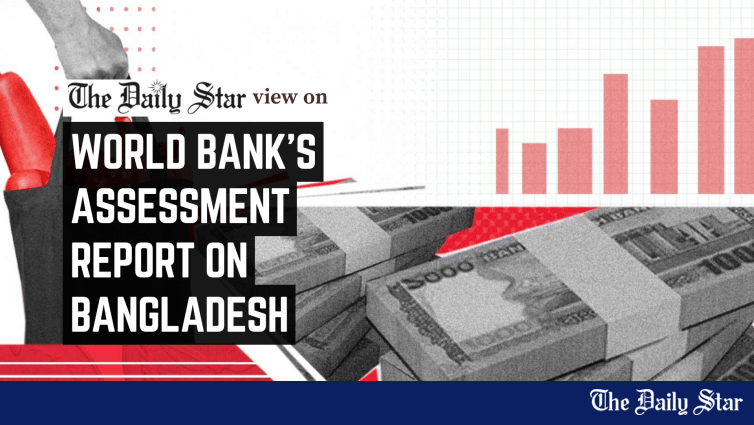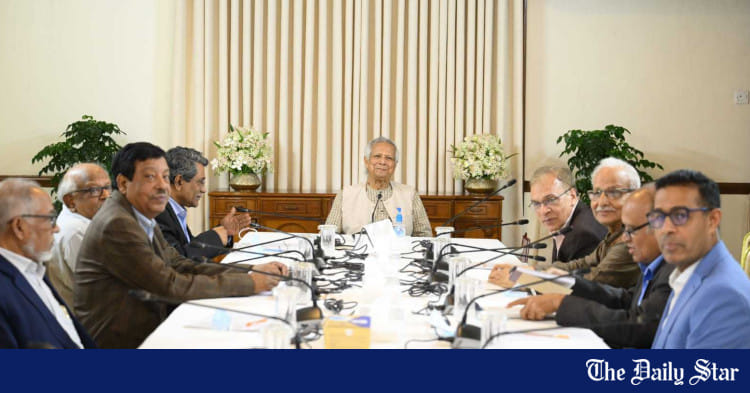Media reform: A roadmap for the interim government
Serajul I Bhuiyan
Published :
Jul 14, 2025 22:49
Updated :
Jul 14, 2025 22:49
With Bangladesh poised to transform its media landscape in tune with a free and enlightened society, the following strategic areas are the subsequent crucial pillars. These are not long-term goals; these are immediate actions, poised for execution right now, to base our progress on transparency, fairness, and honesty.
Legal and Policy Overhaul: In a just society, the law must protect the vulnerable, ensure liberty, and prevent abuse of authority. But in Bangladesh, all the legal instruments geared towards curtailing the media have instead become instruments of repression. From the Digital Security Act (DSA) to the colonial era Official Secrets Act, repressive laws have been used to gag dissent, criminalize journalism, and silence critics under the cover of national interest.
It has brought about a climate of fear, as the media self-censor, citizens are afraid to speak up, and whistleblowers are silent. It is high stake not only freedom of expression, but democracy. As long as these laws remain in books, any effort to reform the media will be incomplete and devoid of credibility.
The Chief Advisor of the interim government (IG) must realise that legal reform is not a technical issue, but a Constitutional commitment. This is the moral framework to which all other reforms must be linked.
Key Reforms NEED TO BE CARRIED OUT
• Abolish the Digital Security Act and substitute it with Rights-Based Legislation. Immediately repeal the Digital Security Act (2018), condemned by the media, civil society, and international human rights organizations for criminalising freedom of speech. Instead, enact a Digital Rights and Safety Act that protects citizens’ freedom of expression online without infringing on civil liberties.
• Repeal the Official Secrets Act and Enact Whistleblower Protection Law. Repeal the antiquated Official Secrets Act (1923) and enact a Whistleblower Protection Act granting citizens impunity to reveal corruption and abuse of authority without fear of reprisals.
• Enact and Enforce the Right to Information (RTI) Act. Upgrade the existing RTI Act to an effective mechanism by establishing an Independent RTI Commission with statutory authority to inquire, direct disclosure, and fine for default. Compel public organisations to disclose information on governance, budget, and public services.
• Grant Constitutional Guarantees to Freedom of Expression. Make specific protections for media professionals, journalists, and cyber-activists part of the Constitution in a way that vague concepts of state security or public order cannot replace freedom of expression.
This change of law is not one of weakening the state capacity—it is one of redefining it in the terms of democracy. An open society can never flourish in the shadow of terror. In replacing terror-based legislation with liberty-based legislation, the Chief Advisor can write his chapter in history as the guardian of an open society.
Let us move from criminalising expression to enjoying it as the driving force of national progress.
Media Development Fund and Incentives: This is the era of digital revolution, and a sustainable media sector cannot be built on the pillars of aging institutions and traditional sources of revenue. We need to reward innovation, independence, and diversity—not by accident, but through wise investment and foresighted policy. Suppose we are to move away from crisis coverage and politically motivated reporting in building Bangladesh. In that case, we need to invest in the next generation of journalists, technologists, and media entrepreneurs.
But now, these promising businesses—especially the ones controlled by women, youth, and rural folks beyond large cities—are fighting for their survival. They have enormous challenges in the areas of finance, infrastructure, and institutional support. In the meantime, already entrenched media oligopolies continue to commandeer resources and power, even at the expense of ethics and pluralism.
An Incentives-funded Media Development Fund, with defined incentives and nationally prioritized direction, can be the impetus for this new generation of journalistic excellence and civic innovation.
Strategic Initiatives to Apply Immediately:
• Establish a National Media Innovation and Development Fund. Establish an independent, state-funded Media Innovation Fund to provide competitive grants to startups, freelancing journalists, civic tech platforms, and fact-checking businesses. Highest priority must be given to projects that benefit the greater good, promote accountability, or develop new digital storytelling tools and media literacy.
• Grant Tax Relief to Ethical and Diversified Media Houses. Develop a tiered system of media tax reliefs for media companies that commit to editorial independence, gender equality, respect for the rights of workers, and community representation. Reward those who engage in inclusive hiring practices, local language publication, or journalism training schemes.
• Encourage Development of Local Content and Cultural Storytelling. Financing programs by institutes and public-private partnerships to promote regional narrative storytelling, documentaries, and creative content reflecting Bangladesh’s diversity and multiculturalism of cultures, languages, and ethnicities. Foster intersectional alliances between journalists, filmmakers, artists, and historians to recover hitherto excluded discursive spaces.
• Establish Fellowships and Awards for Public Interest Journalism. Establish senior-level, government-funded journalism fellowships and national awards to honour bold, honest, and compelling journalism. They must be open to both veteran and new voices, and be decided by panels of experienced, unbiased professionals.
This is the moment to invest not only in media, but in meaning. The CA office can seize this moment to make institutional safeguards for the truth-tellers, the power resisters, and the bringers of light to the stories that matter. By shifting from control to cultivation, Bangladesh can build a media ecosystem that is not only free but also flourishing.
Let us invest in the future of journalism, and hence the future of our democracy.
Institutional Capacity and Regulatory Coordination: Reform cannot be implemented in isolation. The optimal policies will fail if they are obstructed by inefficient bureaucracies, competing mandates, and uncoordinated schemes. In Bangladesh’s plural media ecosystem consisting of ministries, regulators, civil society, and the private sector, governance is as much about coordination as it is about regulation.
For generating a new age of media responsibility, inclusiveness, and innovation, the state must build institutions that are open, reactive, and collaborative. This requires moving away from a culture of policymaking being reactive to one of proactive governance, where there is inter-sectoral and inter-disciplinary synergy.
Beneath this is the necessity to enhance the regulatory architecture and provide institutions with the right tools, capacity, and vision to deliver fair change.
Action Items for Immediate Action:
• Form a National Media Reform Taskforce. Implement an empowered, multi-stakeholder Media Reform Taskforce, directed by a senior-level advisor to the Chief Advisor and consisting of representatives from government, independent media, academia, civil society, and digital rights groups, and tasked with driving the coordination, monitoring, and periodic review of all efforts on media reform.
• Develop a Centralised Media Governance Dashboard. Institute an open-access Digital Dashboard to track and report real-time data on licensing, cost of funds, complaints, enforcement actions, and policy impact. The transparency dashboard will reduce corruption, enhance accountability, and restore public trust in the reform process.
Building Institutional Capacity through Training and Exchange.
Organise regular training programs and policy workshops for regulators, bureaucrats, and media stakeholders on the following topics: global best practices in media regulation, models of freedom of expression, conflict-sensitive reporting, and digital ethics. Partner with institutions like UNESCO, Article 19, DW Akademie, and Al Jazeera Media Institute to enhance regional and international knowledge sharing.
• Set up Open Cross-Ministerial Media Coordination Cells. Create coordination cells in key ministries (Information, Education, ICT, and Justice) to ensure media policymaking is justified and the contradiction or integration of regulations is prevented.
It is not housekeeping governance—it’s building the scaffolding for a more innovative and responsive state. The Chief Advisor’s office must drive a coordinated, accountable, and visionary agenda for media regulation and turn reform into outcomes.
Make Bangladesh’s institutions not only regulate the media, but also change it.
Cross-Cutting Principles: Actual change is never made in policy - it is a matter of the values which inform each decision, every law, and every institution. Suppose the media landscape of Bangladesh is to be altered in a manner that is long-term, ethical, and equitable. In that case, the reform agenda needs to be shaped by a group of underlying values greater than short-term programs or policies.
These are not aesthetics; these are the moral guide that will have to steer the office of the Chief Advisor as it steers the nation to this defining moment of democratic renewal. Without bringing gender equality, young people’s participation, moral integrity, and global harmony into the substantive fabric of the reform agenda, all achievements will be cosmetic and short-lived.
This is not institution-building. This is redefining the media-public relationship, that is, between the media and the audience it addresses, i.e., those who have hitherto been excluded or stereotyped.
To be continued.....................









































